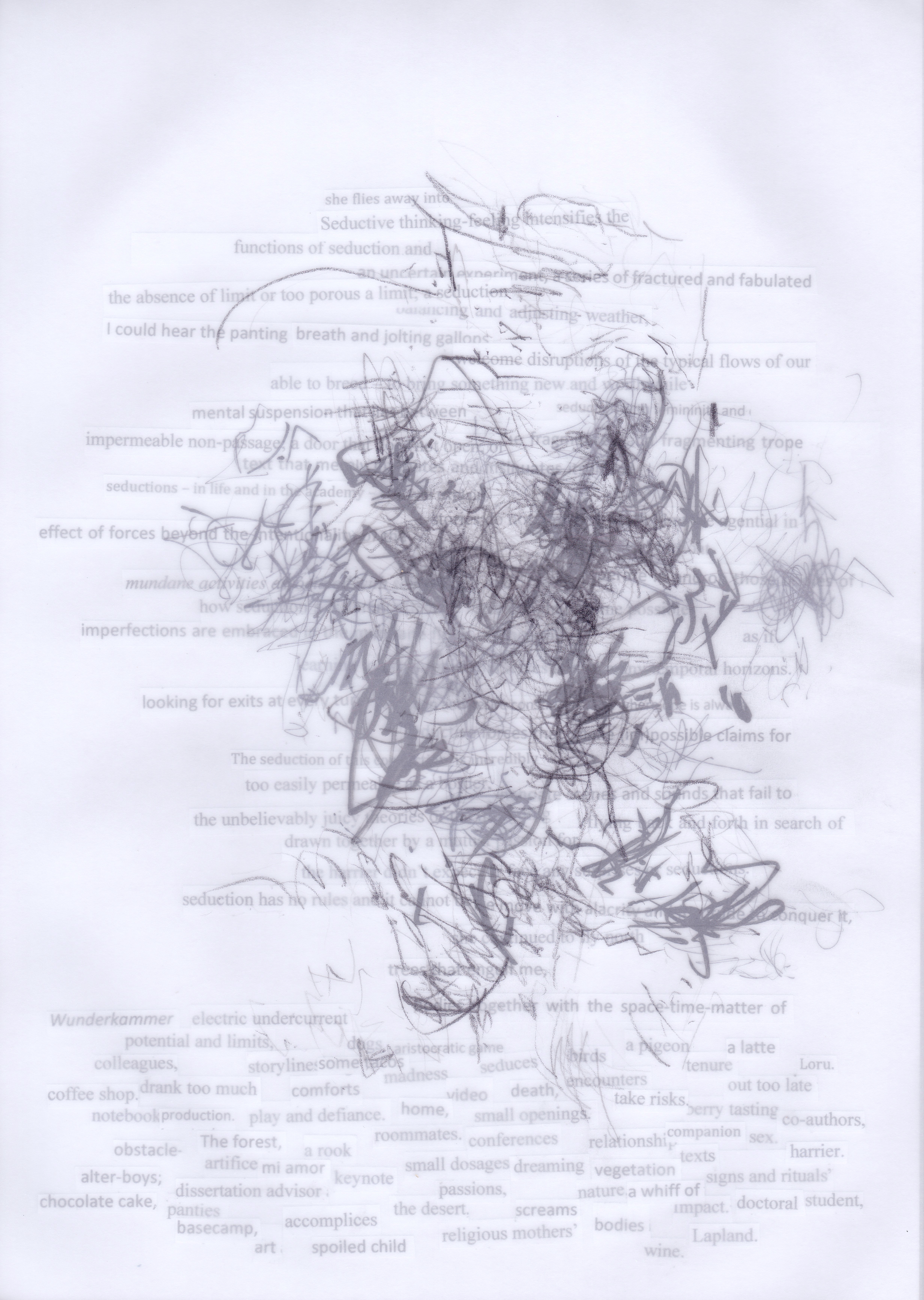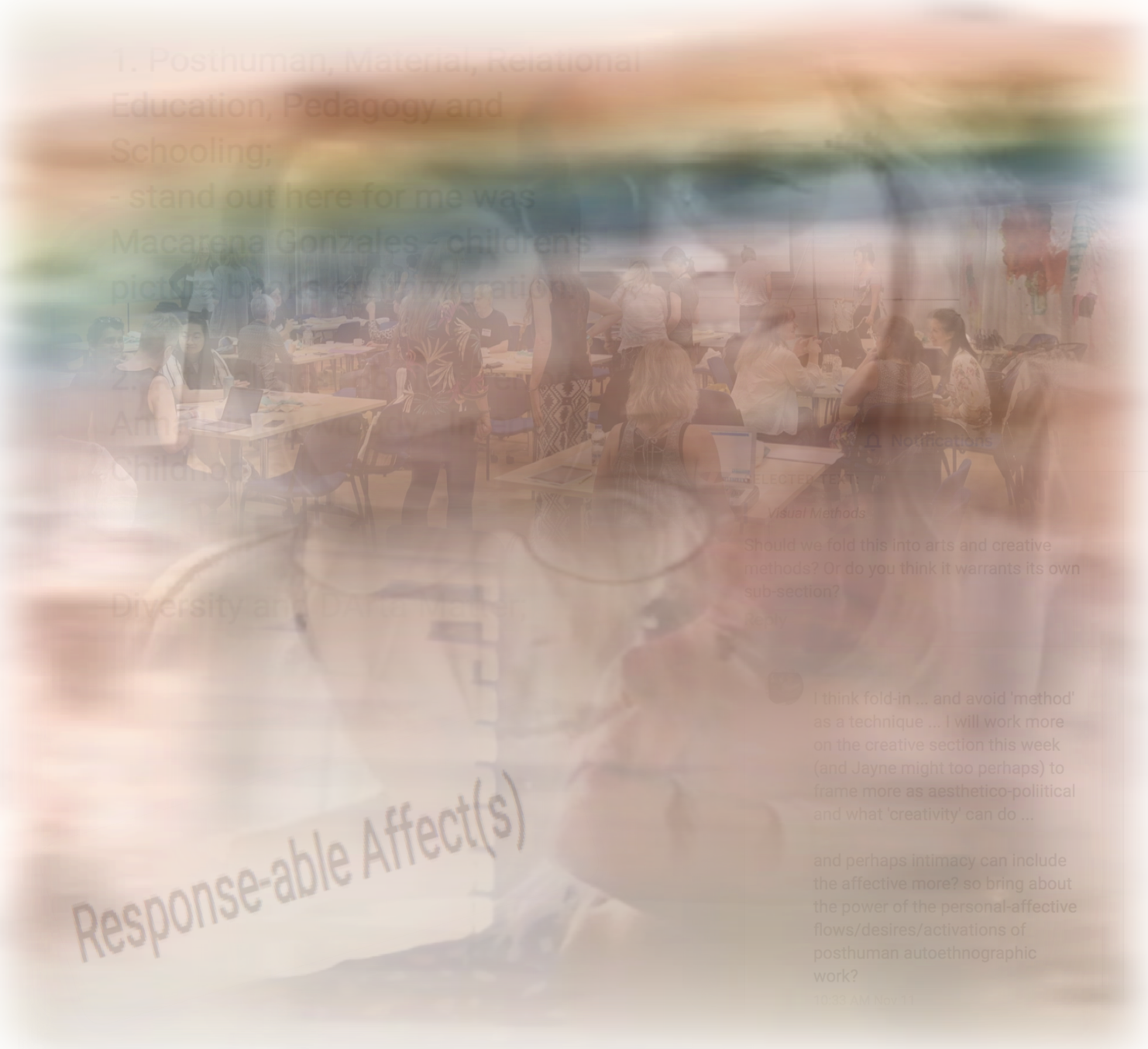Archives
-
Vol. 16 No. 1 (2025)
Special Issue: Researcher positionality and race in color-evasive Nordic educational contextsThis special issue started out as a call to inquire into the ‘blindspots’ of education researchers in the Nordics, including the ways in which ‘colorblindness’ (Beaman & Petts, 2020; Hübinette et al., 2023) implicates research and educational institutions in racist structures and oversights. In the process, we have reflexively revisited our own initial terminology, taking account of the critique of ‘blindspots’ and ‘colorblindness’ as ableist terms, which we have subsequently reframed as ‘color-evasiveness’ (Annamma et al., 2017). As Annamma et al. (2017) point out, evasion is a more accurate description of the dominant manner of relating to race in the Nordic countries: it is an active choice of avoidance, not an inability to perceive race. The authors of the articles in this issue have also shown that systemic racism in education in the Nordics is not reducible to oversight by (white) researchers whose ‘blindspots’ include ‘colorblindness.’ They illustrate that researcher positionality is open to a myriad of possibilities from which to reflect critically on topics that include not only color-evasiveness, silence, and the particularly exclusive kind of Nordic Whiteness, but also the experiences, emotions, and materiality interwoven with one’s ‘perceived racialised positionality’ (PRP) (Gobena et al., this issue). By centering researcher positionality, this issue broadens the scope of potential analytical lenses and topics by which to approach race in the field of education in the Nordics, with a shared anti-racist goal.
-
Vol. 13 No. 3 (2022)
Thought in Motion: Erin Manning’s Imperatives for Educational Research and Qualitative InquirySpecial Issue Editors
Joseph D. Sweet, University of North Carolina at Pembroke, USA
Maureen A. Flint, University of Georgia, USA
Susan O. Cannon, Mercer University, USA
David Lee Carlson, Arizona State University, USA
-

Vol. 13 No. 1 (2022)
Special issue: Mattering seductions in undisciplined qualitative inquiryThis special issue works with and through seduction in an attempt to explore some of the many ways in which seductive forces shape, sharpen and suspend what we think-do-practice as qualitative inquiry. We offer particular forms of unruly and undisciplined forms of writing inquiry as a set of interventions to open (ourselves) up to and attune to those forces that frame and fashion inquiry. In our writings-practicings here, we aim to explore some of the many ways by which, during processes of seduction, inquiry might become subject-(to)-object-(of) desire when scholars interact intimately with knowledge, doing, and living. In our explorations of seductive scholarship, we hold that seduction also challenges ideas of researcher autonomy and independence as it invokes and conjures a set of forces beyond and outwith the individual. In the becomings of, and coming to, seduction – in those moments where inquiry and knowing ‘remains on the threshold of possibility’ (Pandian, 2019: n.p.) – one is always involved in a teeter, in complex trade-offs whose dividend is only partially in/sight.
Amongst the range of questions that we pose and impose in this special issue, we work with/in the sense and non-sense-ical functions of seduction; of how seduction’s different forces take shape, eke unthought potentials, become to have legitimacy, and transform possibility into academic-writing-matterings. Concomitantly, we ask how such forces may also (and sometimes) ossify processes of inquiry into the probable, the expected and the acceptable. We suggest here that seduction, offers one possibility to work with and through the relationalities embedded in orientations towards, and embodied practicings of, many forms of undisciplined qualitative inquiry.
We suggest that attending to forces of seduction produces a new set of orientations towards those wider knowledge production practice landscapes (researching, teaching/learning, minding, caring, sustaining: the doing-thinking-doings of the academy) that make academic-writing-matter really matter. Attending to and taking seriously the forces of seduction in these ways provides, we suggest, a foothold in (un)thinking those knowledge production architectures that claim their legitimacy in objectivist rationalities, putatively removed from the productive pollutions of seduction.
-
Vol. 11 No. 1 (2020)
Makers-Philosophers-Researchers: Experimentations with (Dis)placementsIn 2017, a graduate class became something otherwise. It became an experimental place in which experiences poured through students rather than providing students ready-made experiences. It became a space to encourage the play of difference that challenge our ideas about race, class, gender, ability, sexuality, and so on as frictional events (Puar, 2012). It became a space in which students came to know themselves differently, even subjectify themselves in different ways through experience. By attending to the delicacies of social, material, aesthetic, cultural, historical, and disciplinary forces, the class became a generative space of producing knowledge differently, knowledge that changes us as it much as it changes disciplines (Manning, 2016). It became a space to write and do scholarship differently so as to stay close to the ground to attend to “the sensed social-material-aesthetic atmospherics resonant in a scene, the threshold onto worlds of expressivity in a problematics” (Berlant & Stewart, 2019, p. 34). This Reconceptualizing Educational Research Methodology special issue offers five experimentations that materialized from such a course.
-

Vol. 10 No. 2-3 (2019)
Special issue, PhEmaterialism: Response-able Research and PedagogyThis Special Issue offers PhEmaterialisms as a way to explore the world asvital and complex, while simultaneously being response-able to the multiple ethical imperatives of late-stage capitalism. We argue that PhEmaterialist thinking and practices can help us grapple with growing educational complexities, enabling strategies toresist and create alternatives to the patterns of injustice occurring across the world, from burgeoning ethno-nationalist and neo-fascist political movements, to rising global poverty levels, to massive population displacements, to environmental degradation, to toxic internet movements grounded in misogyny, homophobia, transphobia, and xenophobia (Strom & Martin, 2017a). To understand, enquire into, and generate action worthy of the complexity of our times requires a fundamental shift in our thinking and research practice. This shift disrupts the foundational logic on which dominant thinking in education (and indeed, all Western society) is based—humanism and anthropocentrism (Braidotti, 2013; Murris, 2016; Snaza et al, 2014). Instead, we argue that we need to put theories/concepts to work in education and educational research which can better account for the multiple, entangled, ever-shifting, difference-rich nature of processes of teaching, learning, schooling, and activism. For this work, we also draw on a rich feminist legacy attentive to unequal power relations (e.g., Ahmed, 1998; Anzaldua, 1999; hooks, 1994; Spivak, 1978), and our critical approach to rethinking Vitruvian “man” is especially informed by posthuman/new materialist feminist thinkings and thinkers, including Rosi Braidotti, Donna Haraway, and Karen Barad.
-
Vol. 8 No. 3 (2017)
Postqualitative Curations and CreationsGuest editors
Susan Nordstrom, susan.nordstrom@gmail.com
University of MemphisJasmine Ulmer, jasmine.ulmer@wayne.edu
Wayne State University -
Vol. 5 No. 2 (2014)
Guest-edited special issue
